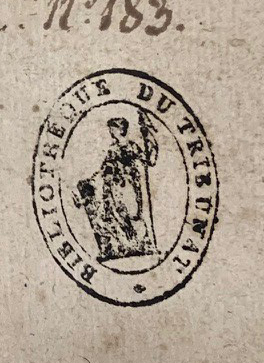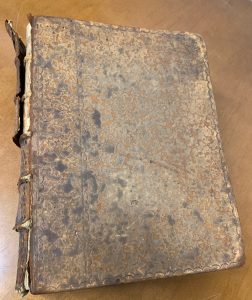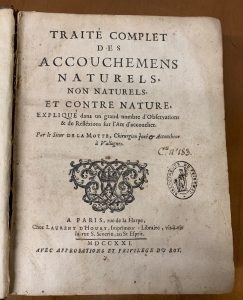Guillaume Mauquest de la Motte was a surgeon-accoucheur. Accoucheurs were male surgeons specializing in childbirth, which became fashionable in 17th-century France as an alternative to the tradition of women as birth attendants. In the early 18th century, accoucheurs were at the center of a polemic by physician Philippe Hecquet, who wrote on the indecency of male birthing attendants. Guillaume Mauquest de la Motte, who responded with a defense of accoucheurs, argued that the skills and expertise that accoucheurs have are necessary to save both mother and child. This midwifery debate was more about whether physicians or surgeons are the best medical providers, rather than justifying or challenging the role of midwives. Change was coming. Only seven years later, the first school for surgeons opened in Paris in 1725, and from then on, surgeons’ training began to resemble the training of physicians.
Guillaume Mauquest de la Motte is also the author of one of the best treatises on childbirth (Traité complet des accouchements, 1721), which was also very popular and had multiple editions. Mauquest de La Motte (1655-1737) studied at the Hôtel-Dieu. After obtaining his degree, he returned to his native region of France and established a practice in Valognes in 1701. He became well known and sought after, because he gained a reputation among women for delivering babies safely. He attended to three or four deliveries daily, and he practiced surgery and obstetrics for more than fifty years. The books he published helped solidify his reputation, because his writing was grounded in his extensive experience.
Traité complet des accouchements is not much to look at, but the HSLS copy holds an interesting link to its past. The book is not illustrated, and unlike the German edition, the original does not have any eye-catching typography, frontispiece, or annotations. The only two noticeable elements are the falling-apart leather cover and a small library stamp pointing to an interesting provenance.
 The stamp indicates that the HSLS copy belonged to the library of the Tribunate, one of four assemblies created by the Constitution of the Year VIII (December 13, 1799) in France. The Tribunate was a deliberative body established to discuss proposed bills before they became laws. The catalog of its library indicates that all areas of knowledge were valued, not only books on politics, morals, and legislation. The inclusion of the treatise on childbirth by Mauquest de la Motte attests to the fact that the collection included a broad range of topics. The library, created around 1800, was made up of the volumes confiscated by the revolution from the various Parisian repositories. It also only existed until 1807, when Bonaparte dissolved the Tribunate. The collection scattered among many libraries, but the books are still identifiable by the presence of a black stamp on their title page, just like the one on the copy of Traité complet des accouchements at HSLS.
The stamp indicates that the HSLS copy belonged to the library of the Tribunate, one of four assemblies created by the Constitution of the Year VIII (December 13, 1799) in France. The Tribunate was a deliberative body established to discuss proposed bills before they became laws. The catalog of its library indicates that all areas of knowledge were valued, not only books on politics, morals, and legislation. The inclusion of the treatise on childbirth by Mauquest de la Motte attests to the fact that the collection included a broad range of topics. The library, created around 1800, was made up of the volumes confiscated by the revolution from the various Parisian repositories. It also only existed until 1807, when Bonaparte dissolved the Tribunate. The collection scattered among many libraries, but the books are still identifiable by the presence of a black stamp on their title page, just like the one on the copy of Traité complet des accouchements at HSLS.
~Gosia Fort

